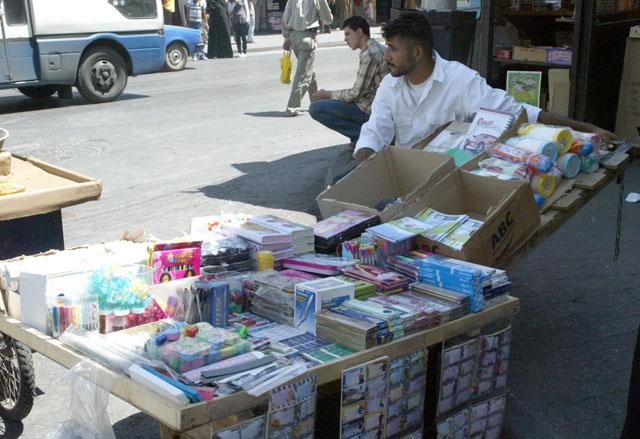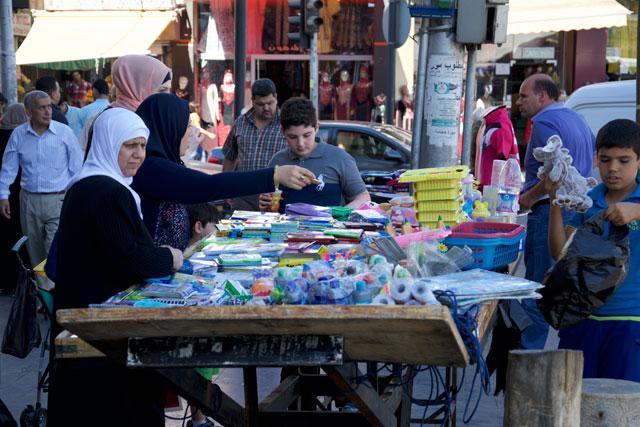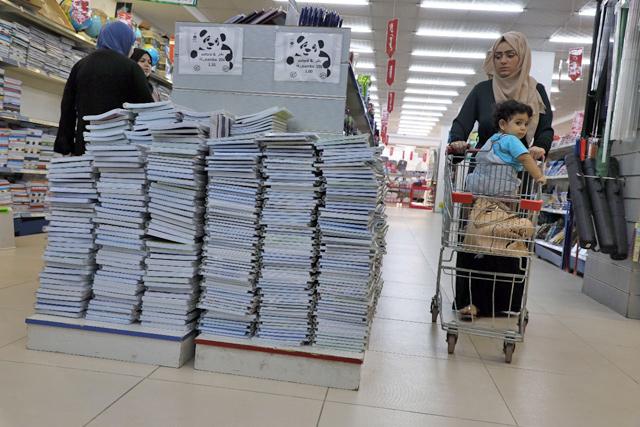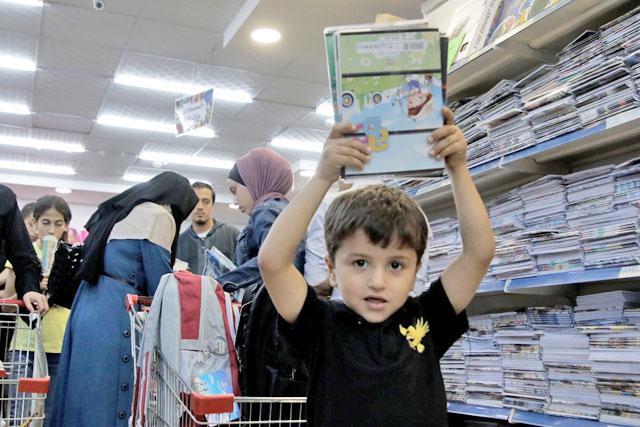You are here
Bookshop owners lament tax hike’s impact on stationery sales
By Suzanna Goussous - Aug 27,2018 - Last updated at Aug 27,2018

Owners of bookshops say public demand for stationery tools has been declining for a while (Petra photo)
AMMAN — With the new academic year approaching, the Stationery and Office Equipment Traders Association on Monday denounced the government’s “disregard” for the sector’s demand to decrease taxes set previously this year, association President Ashraf Kawar said.
The decision, issued by Hani Mulki’s government during the first quarter of 2018, entailed a 5 per cent increase on customs duties for products imported from the Far East, added to the present 30 per cent taxes on the total amount.
“The association has contacted the relevant authorities in Mulki’s government but obtained no response,” Kawar commented, adding that “this time, we contacted the Minister of Finance, hoping to get a response”.
He stressing the decline in Jordanians' purchasing power in all sectors, attributing it to the high taxes, the expenses incurred during Ramadan, Eid Al Fitr and Eid Al Adha, as well as the preparations for a new scholastic year.
“Wholesalers’ losses would amount to almost 50 per cent, according to the data available before Eid Al Adha,” Kawar said, noting that contrary to previous years, when families usually prepare two to six weeks prior to the start of the academic year, the sector did not witness much activity this year.
“The remaining week before schools will not change anything. The issue will evolve and create major problems in the sector, especially when calculating the gains and losses at the end of the year,” he stressed.
Rasheed Khalaf, owner of a bookshop located in downtown Amman, said that the demand has been declining for a while, while the prices of stationery tools witnessed an increase due to a decision by the former government.
“This adds up to the economic situation in the country; with high tax rates, families started buying stationery for schools only for short-term use compared to buying tools that would be used for six months or so,” Khalaf told The Jordan Times.
In addition to the tax increase, the sector has been facing a fallback “due to the interference of other sectors in stationery trade”, according to the bookshop owner.
The taxeson academic notebooks, school bags, and other stationery tools, range from 4 to 16 per cent, he said, noting that the taxes set on pens were raised by 6 per cent.
“The increase affected all households; we received complaints from our customers on the high tax rates adopted since the former government issued the decision, we are still waiting for an official decision,” he added.
Mahmoud Hjeir, owner of a bookshop and member of the association, said the customer turnout has been witnessing a 70 per cent decrease compared to previous years, especially prior to the start of a new academic year for university and school students.
Meanwhile, Firas Shhab, employee at a bookshop near Fifth circle, said that the quality of products is of secondary importance, since the tax increased on all tools.
"Recently, parents have been criticising the tax hikes, demanding that Eid and the start of the school year would be taken into consideration in terms of financial responsibilities,” he added.
Related Articles
AMMAN — With the start of the school year and the approach of Eid Al Adha, parents are faced with additional expenses that some say they wil
AMMAN — The Stationery and Office Equipment Traders Association on Thursday voiced concern about the economic conditions and challenges faci
AMMAN — With Eid Al Adha vacation swallowing their salaries, parents said that preparing their children for school is just a “nightmare”.The



















